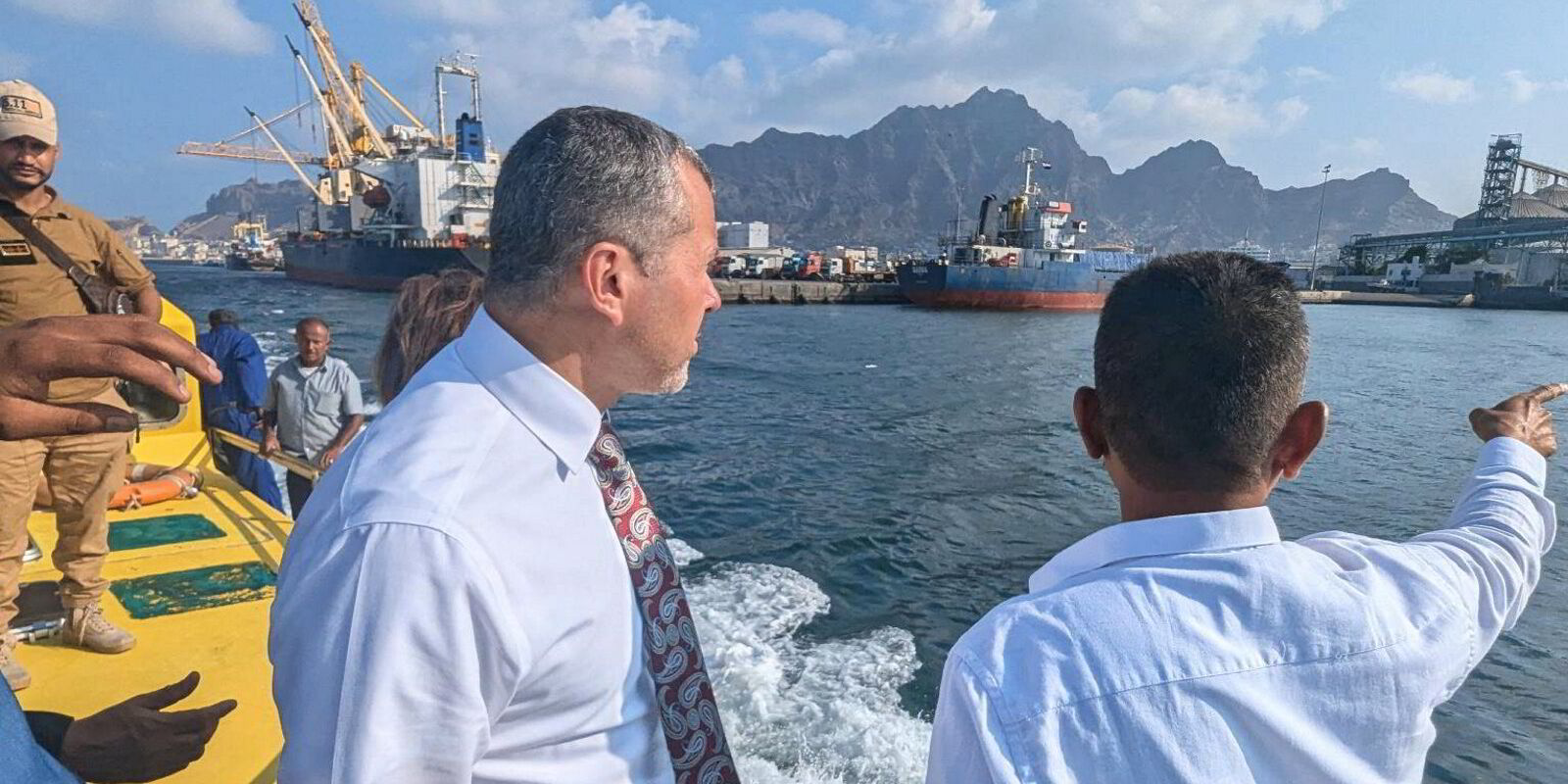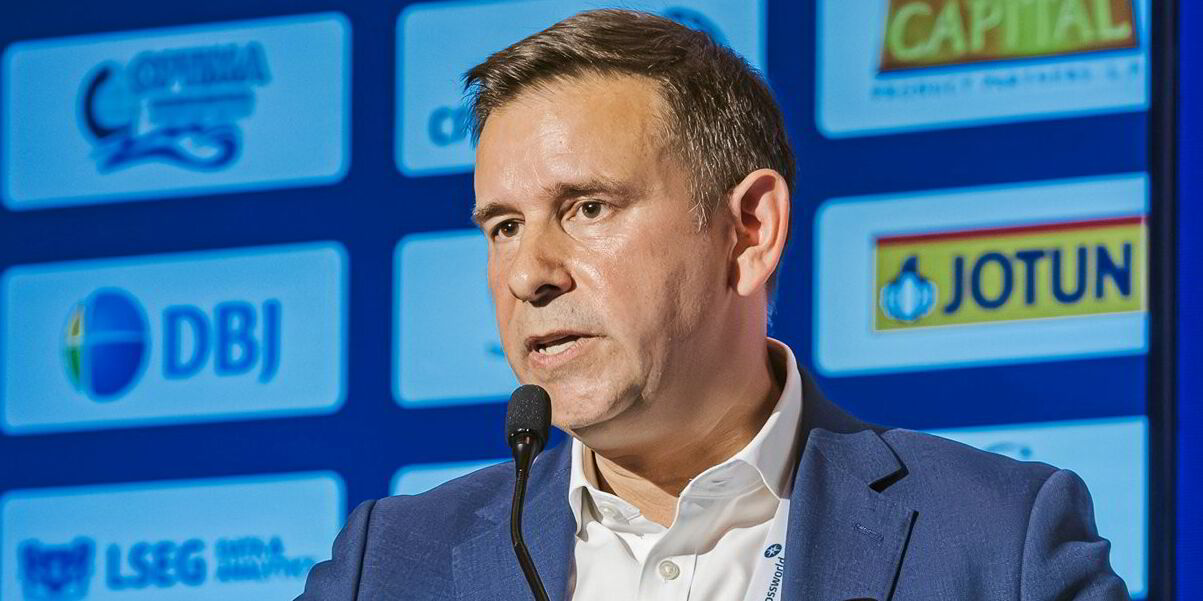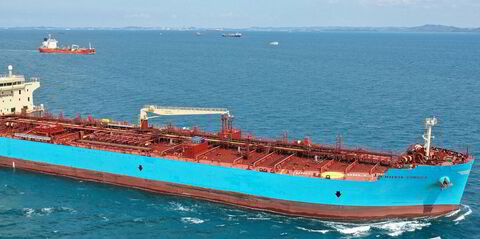The first year of the Red Sea crisis has left a legacy of navigational and environmental hazards that can only be resolved when tensions ease, the secretary general of the International Maritime Organization has told TradeWinds.
Arsenio Dominguez said that Houthi attacks on shipping have forced the industry to confront the reality of becoming a target in geopolitical conflicts and to improve its response to the impact of shocks.
The attacks in the past 12 months include the sinking of the 32,000-dwt Rubymar (built 1997), which was hit by two missiles fired by the rebel group.
The ship left a 29-km oil slick before it sank nearly two weeks later.
Dominguez said: “All countries are affected by disruptions to international shipping and there are already navigational and environmental hazards due to the ships that have been sunk from the attacks, which would need to be dealt with as the situation improves.
“This only serves to emphasise again and again that shipping should not be a target, ever. It has compelled the industry to prioritise thinking about ways to improve resilience and response to shocks.”
The Rubymar’s cargo of fertiliser and remaining bunker fuel poses an environmental threat to Yemen and prompted an IMO appeal for a pollution kit in July.
But salvage operations in the region are fraught with difficulty, highlighted by the initial failed attempt to tow the abandoned and burning 163,800-dwt Sounion (built 2006) after explosives were detonated along the length of the deck of the laden tanker in August.
The cargo was finally offloaded two months after the attack after an agreement was struck with the rebel group that allowed it to be towed from the danger zone and narrowly averting a major oil spill.
A third ship, the 82,400-dwt Tutor (built 2022), sank in June after being the target of a missile and sea drone attack.
The conflict has also resulted in delays in completing the major United Nations-backed project to remove oil from a decaying floating storage unit off the coast of Yemen.
While 1.1m barrels have been removed from the FSO Safer (built 1976) off the rebel-held port of Hodeidah, the project to remove the vessel from Yemen for scrapping has been put on hold because of the attacks.
A UN panel of Yemen experts published a report this month that warned the Houthis had taken control of the Safer and its replacement tanker bought by the UN after an appeal.
Read more
- Houthi missiles target bulk carrier twice as Red Sea crisis nears first anniversary
- ‘Multiple explosions’ pepper waters near ship in new Red Sea attack
- Expert casts doubt on size of Houthi bribe claims cited in UN report
- SCI promotes former female junior officer to finance chief
- Fire-ravaged Greek tanker begins oil transfer two months after Houthi attack





